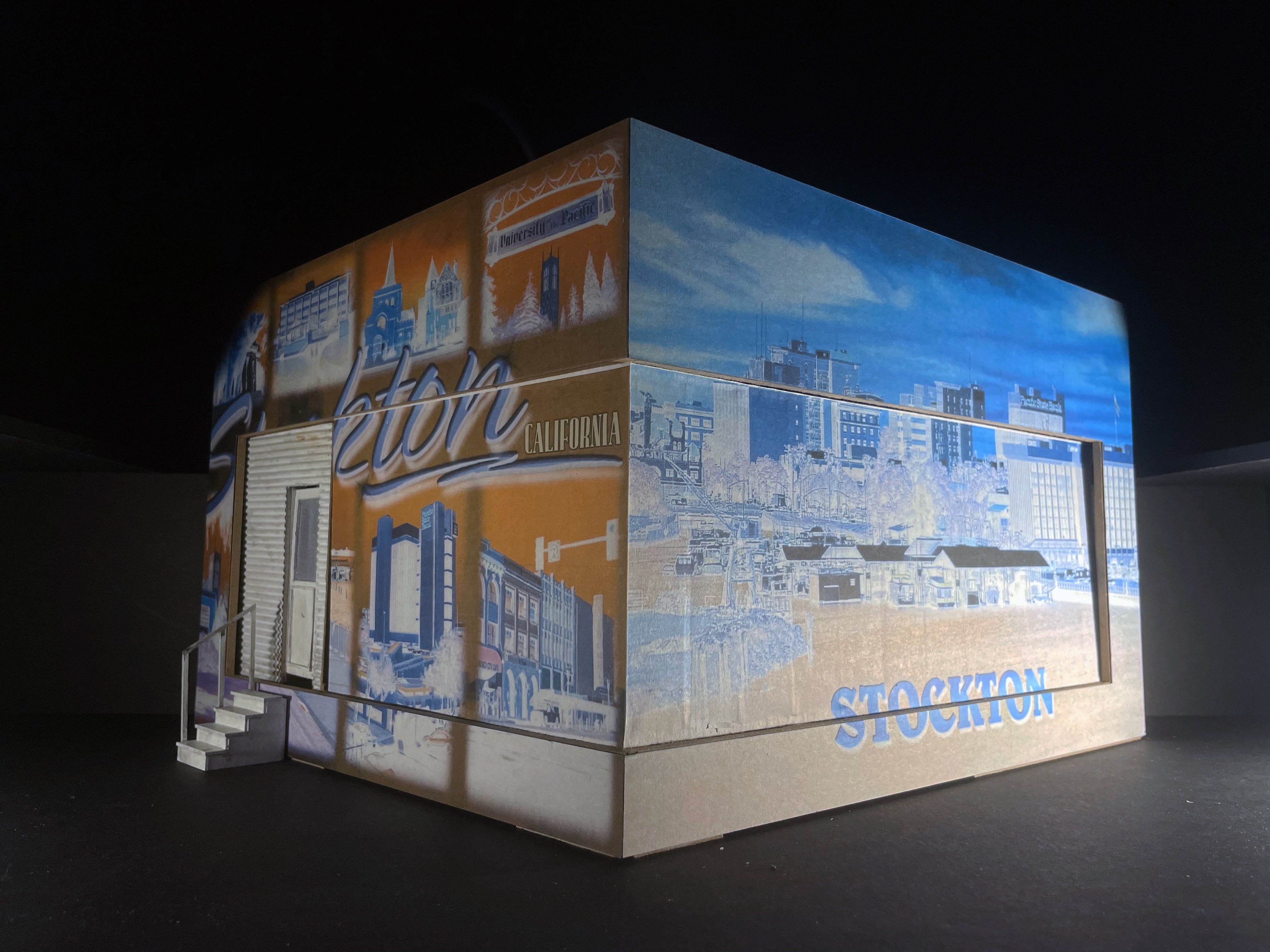
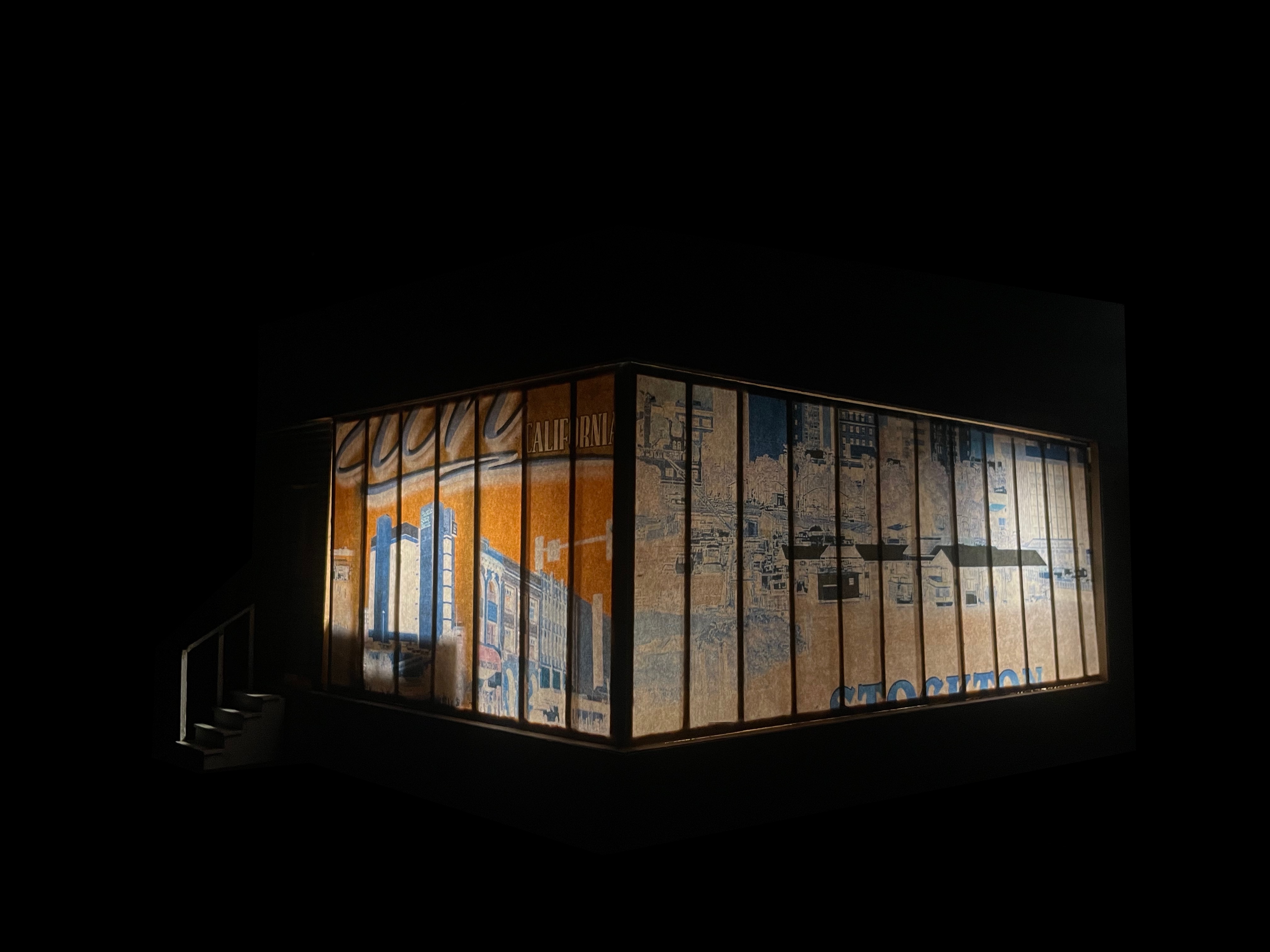

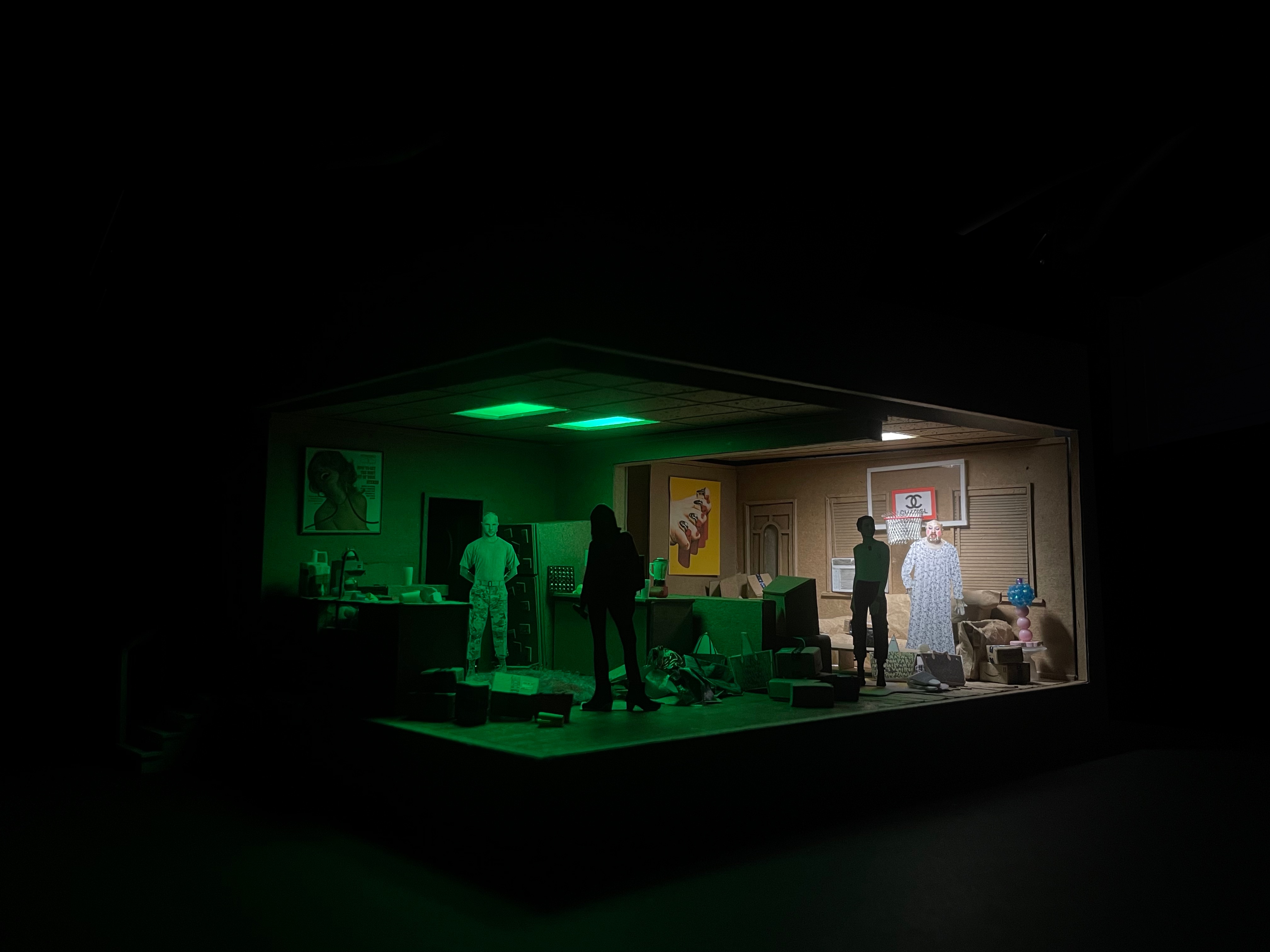
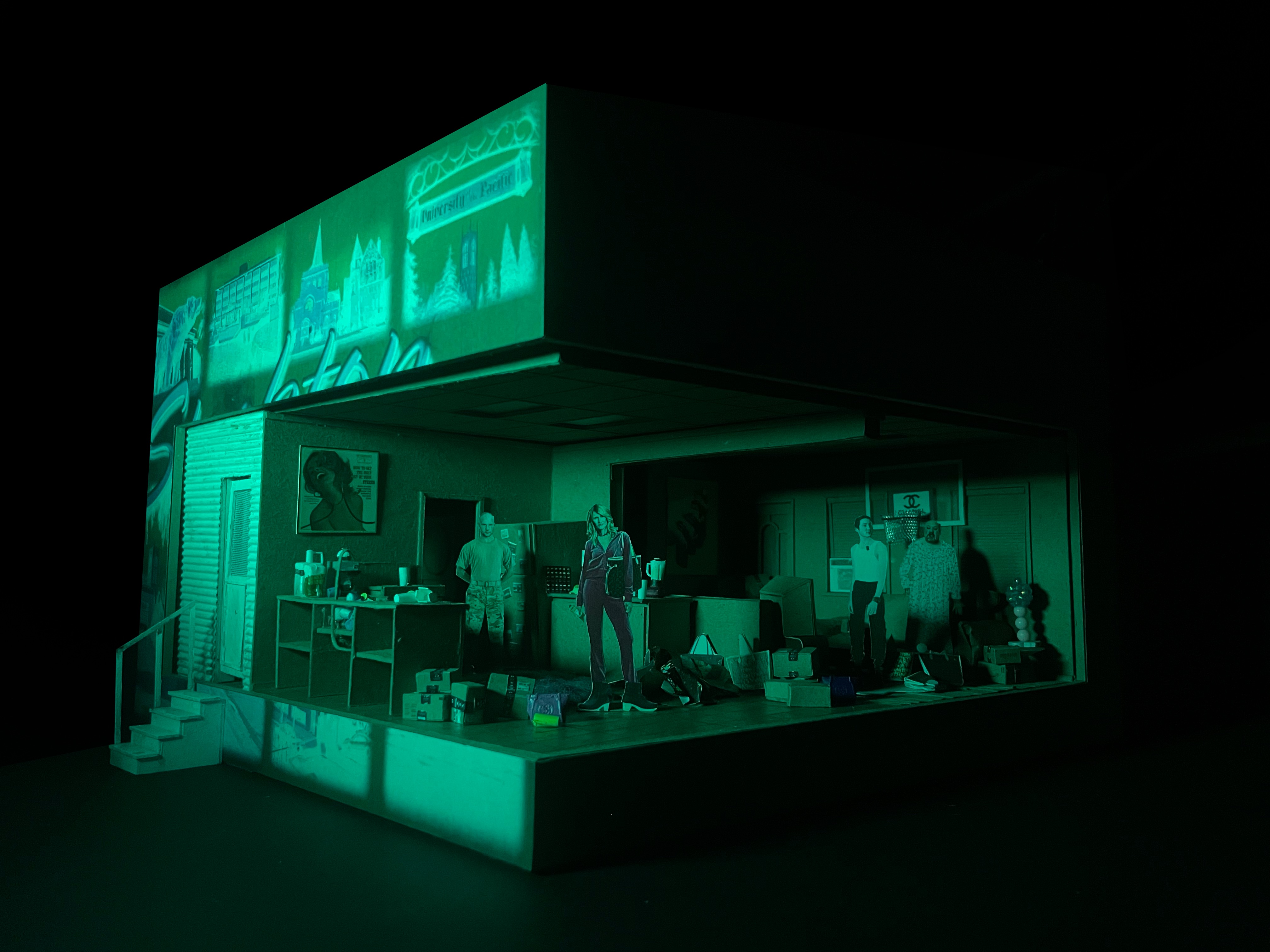
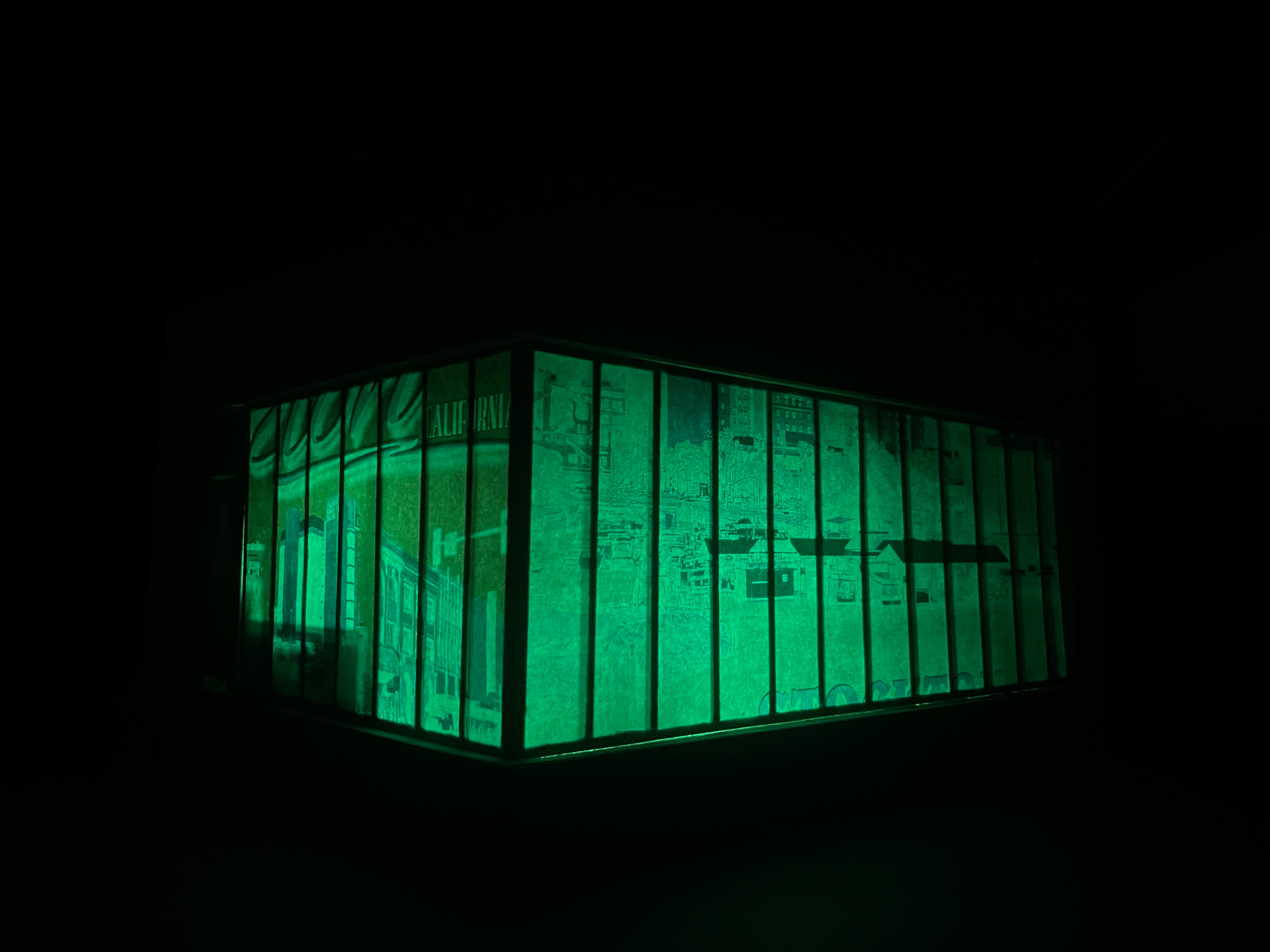



/hir
Written by: Taylor Mac
Set design: Josh Barilla
Discharged from the Marines under suspicious circumstances, Isaac comes home from the wars, only to find the life he remembers upended. Isaac’s father, who once ruled the family with an iron fist, has had a debilitating stroke; his younger sister, Maxine, is now his brother, Max; and their mother, Paige, is committed to revolution at any cost. Determined to be free of any responsibility toward her formerly abusive husband—or the home he created—Paige fervently believes she can lead the way to a "new world order." Hir, Taylor Mac’s subversive comedy, leaves many of our so-called normative and progressive ideas about gender, families, the middle class—and cleaning—in hilarious and ultimately tragic disarray.
Hir is an exploration of family disfunction, identity, reparation; expressed through the medium of a living room play.
The audience enters the space and are met with two postcards of Stockton California. The billboard scale displays the ideal of this town as a product to sell. The images cut away to reveal the reality behind it; the Conners family home.
The house is a symbol of past trauma and a container for memories. The patriarch of the household, Arnold, built this starter home cheaply by hand. As Arnold lost grip of his job, family trust, and mental capacity, the home was turned over to his wife Paige.
Paige is slowly transforming her house of haunted memories into a biodegradable garbage pit filled with reminisce of radical consumerism. She doesn't cook, only takeout, she doesn't clean, and only leaves the home to go to her committee meetings and cultural outings. We see her coffee addiction has taken hold of the kitchen space with the only dishes being coffee cups and the only stocked consumable being nespresso pods.
The walls and floors are heavily decorated with home delivery cardboard boxes and food takeout containers. The home is turning into a cardboard box itself as Paige transforms every old component of the home into cardboard, disgusting the past memories associated with them.
We see her decor curation scattered throughout the house where she adorns walls with her absurd translation of luxury goods. These items help Paige claim the space as her own, opposed to when Arnold reigned the household. As she drains the families limited resources on her selfish acts of reinvention she drives her family deeper and deeper into obscurity.